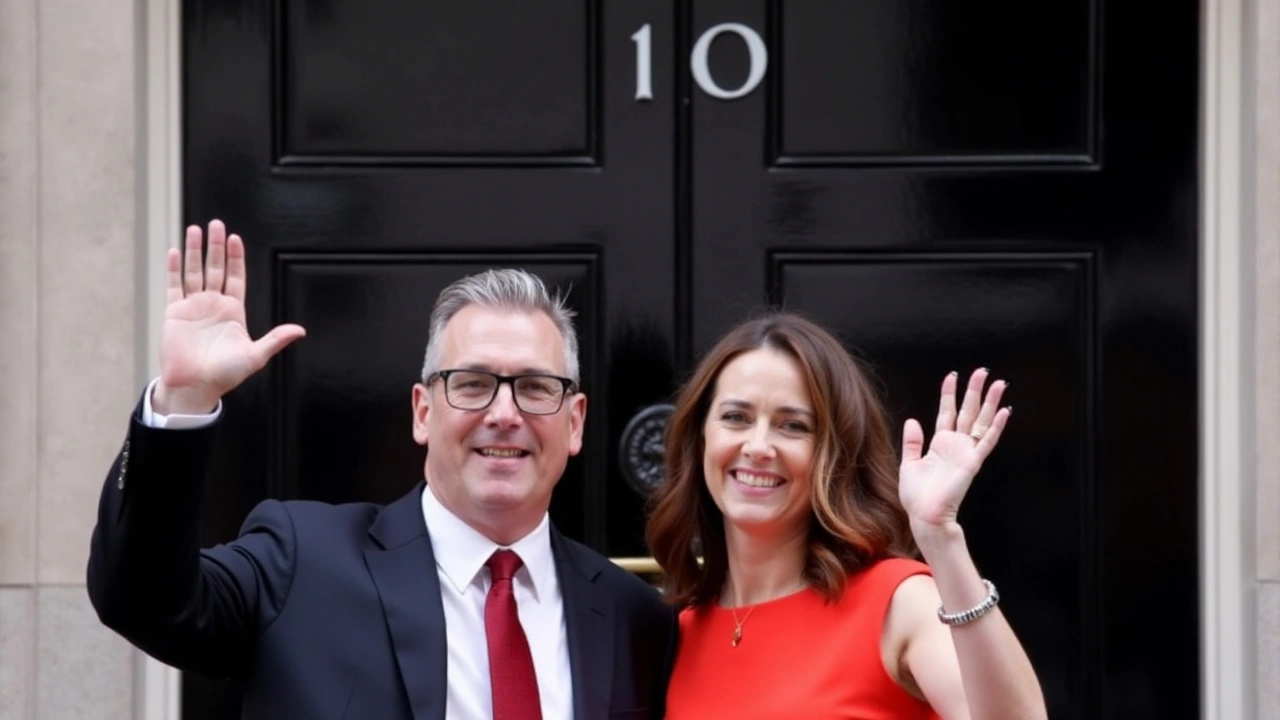Keir Starmer's Ethics Dilemma: Addressing the Gift Controversy
This year’s Labour conference in Liverpool has been dominated by the controversy surrounding the gifts and hospitality that Keir Starmer has accepted. Despite declaring all of these gifts and seeking advice, Starmer faces growing criticism for not embodying the spirit of the rules. As the leader of a party that promised to restore trust in politics and govern differently, Starmer finds himself in a situation where the focus is not on policy or future plans but rather on ethical questions about his conduct.
One of the key criticisms leveled at Starmer is that he has accepted more gifts than any other MP since the 2019 election. These gifts have included everything from clothes to football tickets, and while none of these items were hidden from the public, they have nonetheless created an image problem for the Labour leader. This debate has overshadowed other important announcements from the government, with media attention squarely on Starmer’s personal actions rather than Labour’s policy positions.
Reasserting Labour's Ethical Commitments
The Institute for Government suggests that in order to shift the narrative and focus, Starmer must take bold actions immediately. This involves not only living up to the commitments made in opposition but also setting a new tone for standards in government that can be universally recognized as ethical. During this conference, Starmer has the unique opportunity to lay out his vision clearly. This would start with the publication of an updated ministerial code—a clear, transparent document that defines the acceptable standards for conduct in office. By doing this, Starmer can clearly communicate that Labour is serious about ethical governance from the very top.
Additionally, the party had earlier proposed the establishment of an Ethics and Integrity Commission. This commission would serve as a watchdog, ensuring that all MPs adhere to these higher standards. At this conference, Starmer needs to provide solid details on how this commission will function and the resources that will be dedicated to it. The independence of this body is crucial, as it needs the power to initiate investigations into breaches of the code autonomously. Only then can it be seen as a body that MPs cannot influence, ensuring a higher degree of accountability.
Moving Beyond Controversy
Starmer’s task is compounded by the fact that trust in politicians remains dismally low. Public skepticism isn’t new, but the present climate requires more than just promises and policies on paper. Each decision Starmer makes now will be scrutinized against the standards his party set before the general election. The conference, therefore, serves as a double-edged sword—either it overshadows the current narrative or it becomes the stage where Labour convincingly demonstrates what it stands for.
The ongoing controversy has placed an additional layer of pressure on Labour’s leadership. During this veneer of ethical scrutiny, it’s crucial for Starmer to stand firm, owning his mistakes if any, and transparently mapping out the changes that will restore and build trust. Given that cabinet ministers are being questioned more about gifts than governance, the focus needs a hard reset. Starmer should begin by illustrating how his approach to ethics and hospitality is evolving.
The Road Ahead
The Labour Party, under Starmer’s leadership, has already committed to breaking away from past reputations of any ethical leniency. Meeting this challenge head-on, without wavering, could redirect public discourse, allowing Labour to steer the conversation back towards policies that matter. Labour's promises aim not only to adhere to higher standards but also to be a beacon for ethical conduct in modern politics. The establishment of an independent adviser's power to launch investigations and the public detailing of the Ethics and Integrity Commission’s role will serve as cornerstones for this shift.
A Pressing Need for Bold Action
For Starmer, there’s no soft way out of this ethical maze. Bold reforms and a transparent modus operandi will be essential steps. The conference has inadvertently turned into a litmus test for Labour’s seriousness about restoring political trust. Every action from this point forward will be a reflection of the party’s commitment to ethical governance. If executed well, these measures won't just resolve the present clamor but will also solidify Starmer’s vision for a cleaner, more accountable government.
The narrative of ethics cannot merely be one of reactionary measures but must be preemptive, making sure that every step taken is in alignment with the high standards Labour aims to enforce. This is Starmer’s moment to not only respond to critics but to define a new era of political integrity.






12 Comments
Amar Yasser
September 21, 2024 AT 12:38 PMHonestly, Starmer’s got a real chance to reset this whole thing. If he drops the new ministerial code and actually funds that Ethics Commission with real teeth, people might start believing him again. No more half-measures.
Vikas Yadav
September 22, 2024 AT 15:38 PMI mean... he accepted gifts, sure, but so did half the MPs... why is he the one getting crucified? The system is broken, not just him.
Saurabh Shrivastav
September 24, 2024 AT 00:20 AMOh wow, a politician actually trying to be ethical? Next they’ll tell us the sun rises in the east and the moon is made of cheese. What a shocker.
Unnati Chaudhary
September 24, 2024 AT 20:17 PMIt’s not about the gifts. It’s about the vibe. You can feel when someone’s trying to do right, and right now? Starmer’s vibe is... tired. Like he’s just going through the motions.
Divya Johari
September 25, 2024 AT 10:38 AMThe moral failing here is not merely procedural but existential. One cannot purport to lead a moral reformation while simultaneously indulging in the trappings of privilege without explicit, unambiguous accountability.
Vijendra Tripathi
September 26, 2024 AT 01:46 AMLook, I get it. People are tired of politicians being shady. But Starmer’s not a crook-he’s just bad at PR. If he just posted a video saying ‘Yeah I messed up, here’s what I’m fixing’ and showed the commission’s budget line? Boom. Trust starts rebuilding.
ankit singh
September 27, 2024 AT 04:14 AMThe commission needs real power not just a name. Independent investigators, subpoena rights, no minister can block a probe. That’s the baseline. Anything less is theater
Steven Gill
September 27, 2024 AT 13:42 PMi think the real issue isnt the gifts its the silence after they were accepted... like he knew it looked bad but didnt say anything till it blew up... its not the what its the how you handle it... we all make mistakes but pretending they dont matter? thats the problem
Sreeanta Chakraborty
September 28, 2024 AT 21:21 PMThis is all a distraction. The media knows the public is fed up with Labour’s socialist agenda, so they focus on gifts to make Starmer look weak. The real threat is the erosion of British sovereignty, not a football ticket.
Pratiksha Das
September 30, 2024 AT 20:11 PMdid he get like a free designer suit or somethin? like how many gifts are we talking? i just wanna know if its like 10 or 1000 becuz if its 10 then why is everyone mad? if its 1000 then yeah hes a mess
Aniket sharma
October 1, 2024 AT 05:47 AMLet’s not forget: ethics isn’t about perfection. It’s about showing up, owning it, and building systems so the next person doesn’t have to fight the same battle. Starmer can be that guy.
Prince Chukwu
October 1, 2024 AT 13:36 PMMan, this whole thing is like watching your uncle try to fix his WiFi by yelling at the router. He’s got the right tools, the right plan… but he’s still standing there sweating in a suit holding a football ticket like it’s the Holy Grail. Time to unplug the whole system and start over.